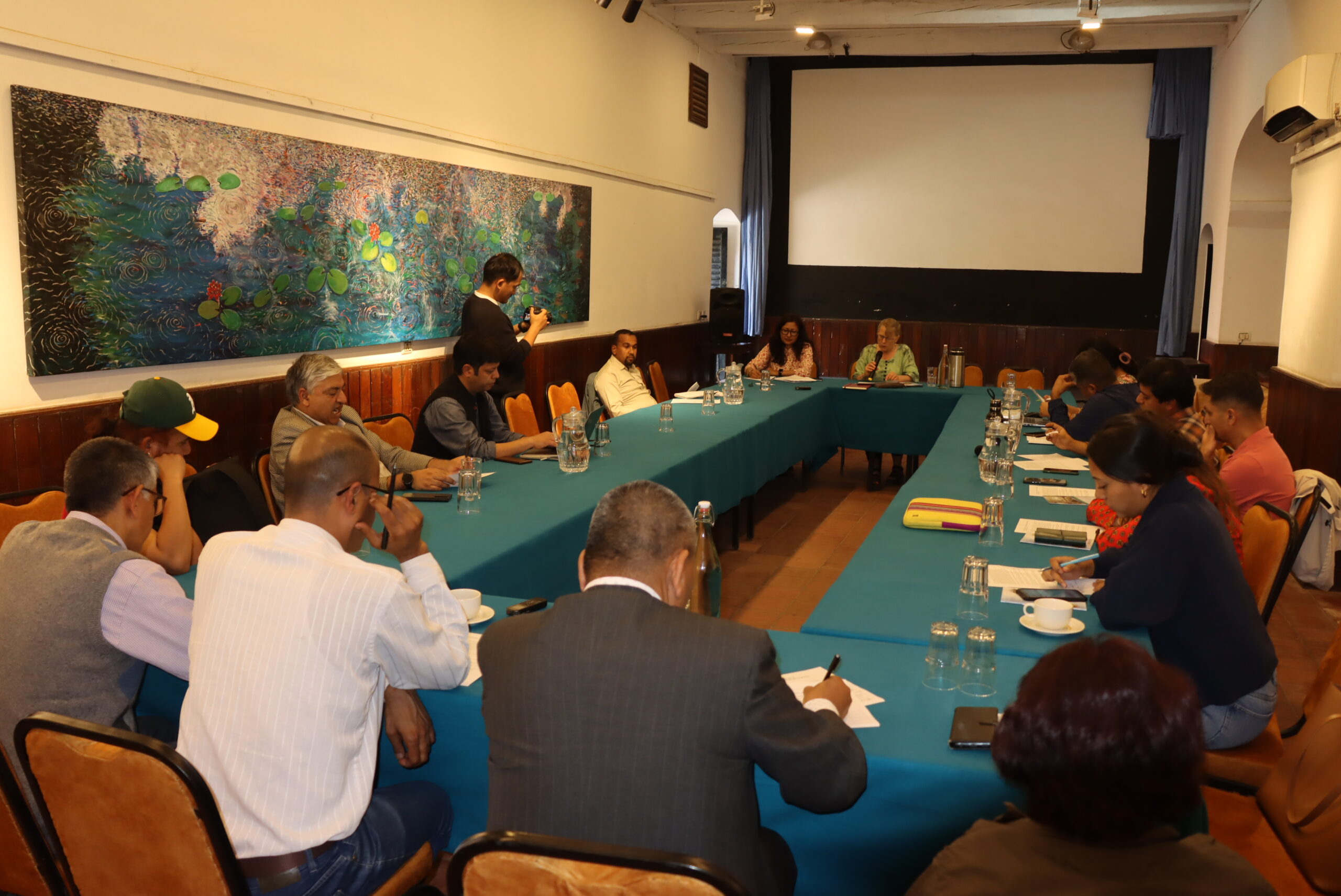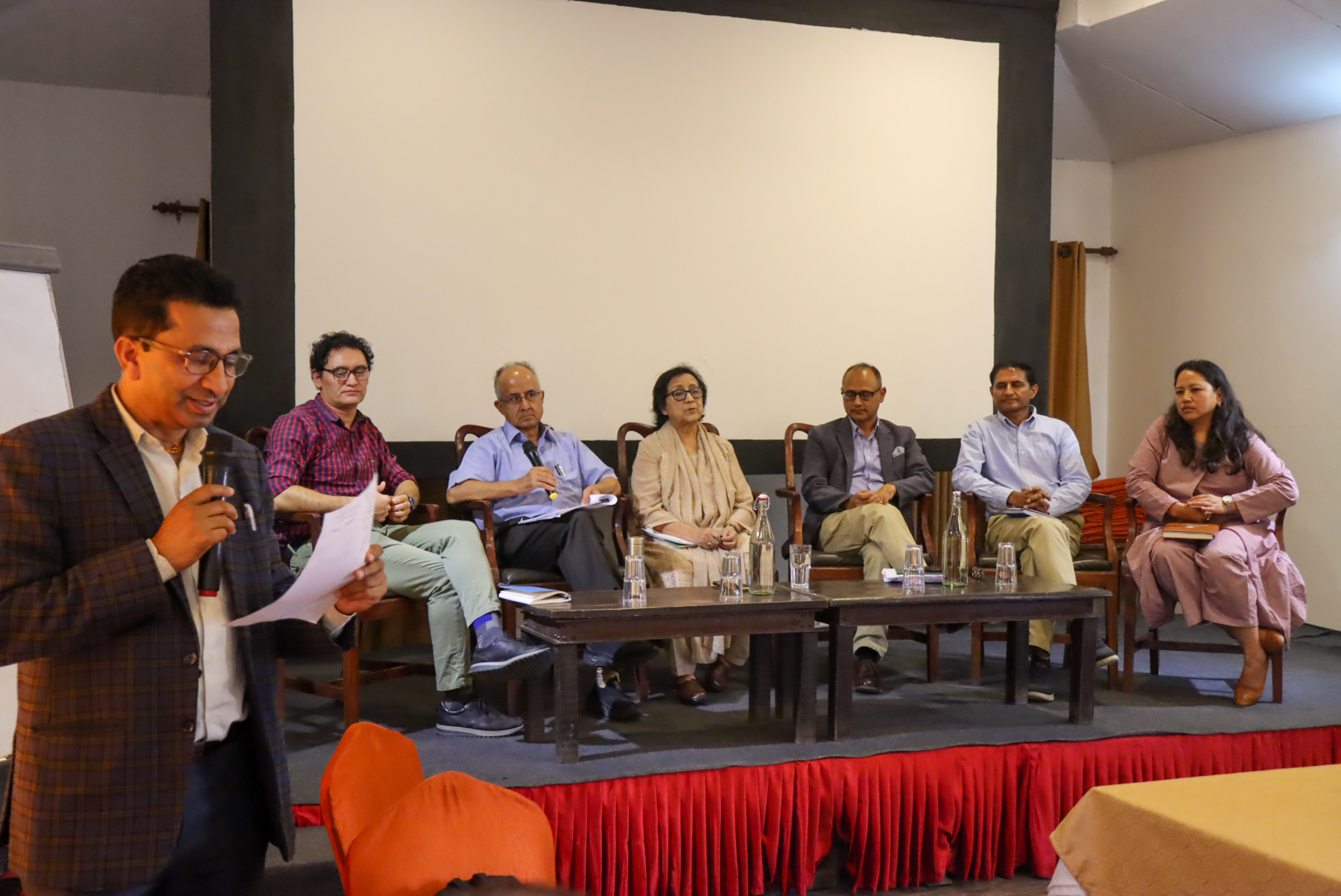Southasia Institute of Advanced Studies (SIAS) organized a Climate Adaptation Dialogue on 30th December 2022 in Kathmandu as a part of SIAS’s ongoing engagement on climate adaptation policies and practices under the project ‘Governing climate-resilient futures: Gender, justice and conflict resolution in resource management.’ The dialogue brought together a diverse set of participants including development practitioners, policymakers, researchers, and academia. It had an insightful discussion about Nepal’s ongoing climate adaptation policies and practices along with the challenges and reflection of adaptation programs being implemented at the local level. The discussion also effectively captured Nepal’s current position and priority in the global climate adaptation discourse and the key areas of future research.
In the opening remarks, Prof. Andrea Nightingale from the Swedish University of Agricultural Sciences (SLU) and Dr. Hemant Ojha from the Institute for Study and Development Worldwide (IFSD), jointly talked about the efforts at dealing with climate change in Nepal and how they have been scattered across different institutions, often driven by international funding and donations. They focused on re-envisioning of adaptation and resources not only at the central level but also at the local level. “Along with the biophysical risks of climate change, the socio-political roots of vulnerability should also be taken into account while designing adaptation plans”, said Prof. Nightingale.
Dr. Madhav Karki, Member, EP & CCM National Council & Distinguished Fellow, CGED-Nepal delivered a keynote presentation focusing on the need for transformative adaptation in Nepal. He contended that the current adaptation work in Nepal does not address the ‘adaptation deficit’ adequately. Mentioning the need for transformational adaptation to replace falling systems and institutions, he said it is imperative for effective adaptation to climate change impacts. He highlighted that the adaptation interventions that use transformative approaches change lives by protecting and building the resilience of failing systems and practices and therefore fill in the ‘adaptation gaps.’ “By shifting adaptation from science issues to governance issues and from a problem-solving approach to a learning and co-production approach, transformative adaptation can lead to informed decision-making and enabling governance”, said Dr. Karki.
Three focused presentations by climate adaptation experts followed the keynote presentation. Mr. Man Bahadur BK, Deputy team leader of Nepal Climate Change Support Program (NCCSP) phase-II shared the learnings and challenges from the NCCSP program. He mentioned that the difference in understanding of LAPA among the stakeholders and the lack of mainstreaming and integration of climate change adaptation in policy and practices have been the major issues during the program implementation. While the policy harmonization deficit among the three tires of the government has been a major confront in climate adaptation, Mr. BK highlighted the need for institutional arrangements to roll out sectoral mainstreaming and integration. Thereafter, Mr. Bal Krishna Jamarkattel, National consultant- CEED at UNICEF, sharing his experience in adaptation planning and implementation reiterated the need for integrating and mainstreaming adaptation for sustainable and resilient environmental planning. He further highlighted risk-informed adaptation planning’s worth even before the mainstreaming along with local ownership and institutionalization for effective results. Similarly, Mr. Binod Gyawali, District Project Coordinator of ASHA project shared some experiences in LAPA implementation from the project. He asserted that insufficient funding and inadequate institutional arrangements for the LAPA/adaptation planning process are the major hindrances to efficient climate adaptation in Nepal. “The lacking capacity of local government institutions and service providers has been limiting effective adaptation to climate change”, said Mr. Gyawali.
The presentations were then followed by a moderated discussion by Dr. Dil Khatri, Executive Director of SIAS. During the session, the participants pointed out the political gaps in the adaptation practices in Nepal and said that the lack of political buy-in for adaptation at all three levels of government is causing ineffective practices at the national and local levels. While some participants focused on the need for transformative, interdisciplinary, and inclusive adaptation practices, some highlighted the need of integrating our local knowledge and experiences into the donor-funded adaptation frameworks currently being implemented in Nepal.
Lastly in the closing remarks, Mr. Ajay Dixit from ISET Nepal, sharing his own experience in the dialogue highlighted that any of the climate adaptation practices in Nepal has to move beyond the concept of climate awareness and work for robust transformative changes. “The deep institutional culture that Nepal has been following for decades has to be rethought”, he said. Lack of strategic thinking and informed planning has been the major cause of maladaptation in Nepal. According to him, a very critical audit of our past experiences is to be done for designing successful interventions in adapting to the increasing climate variability.
The event ended with summarizing key take-home messages and thanking notes.




